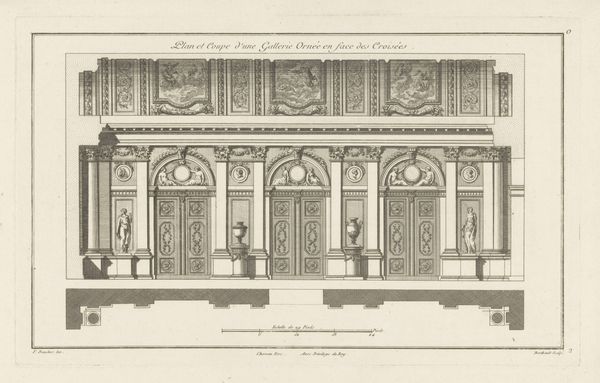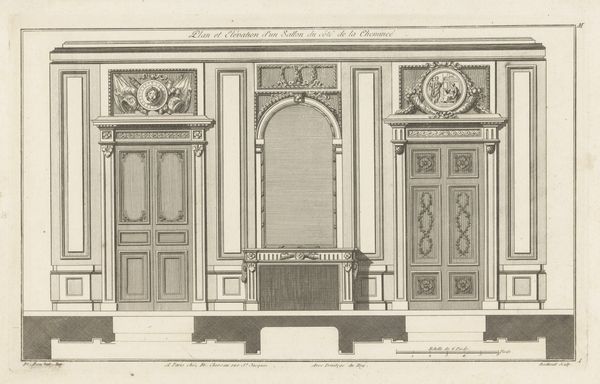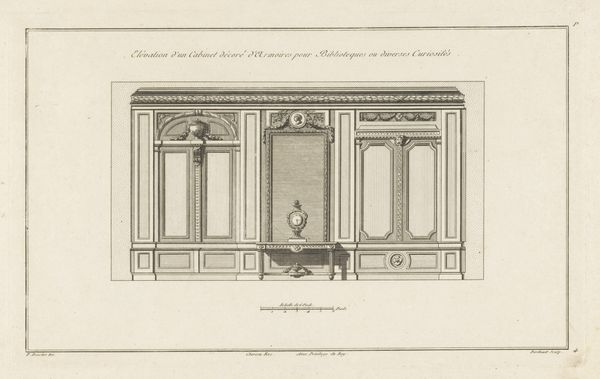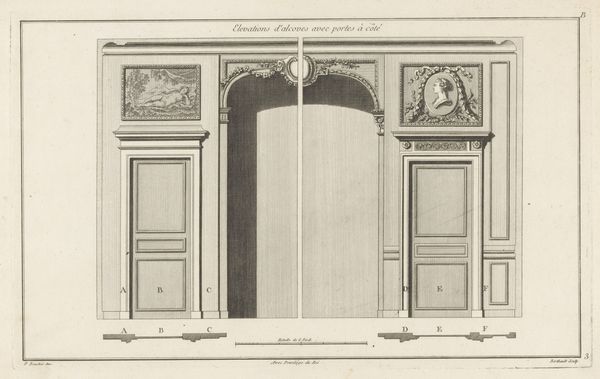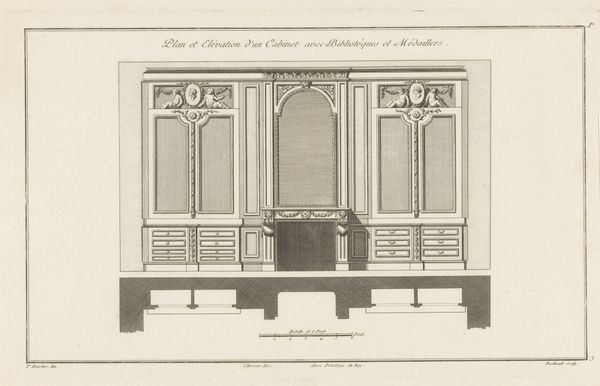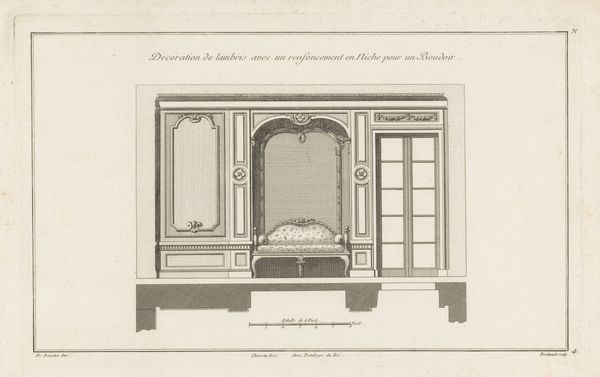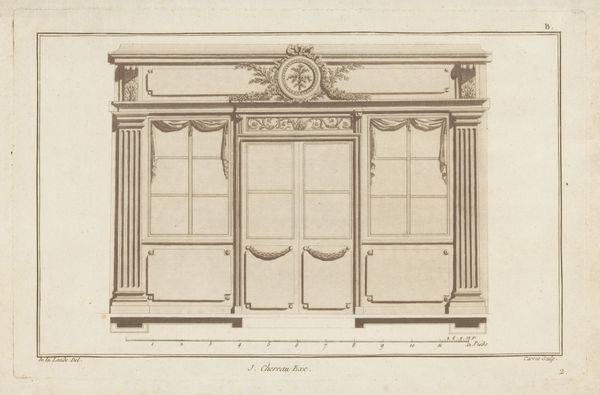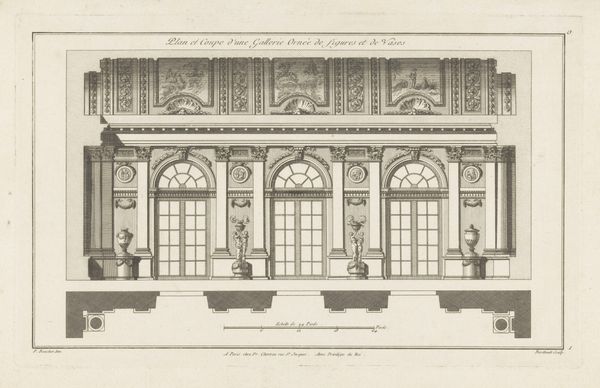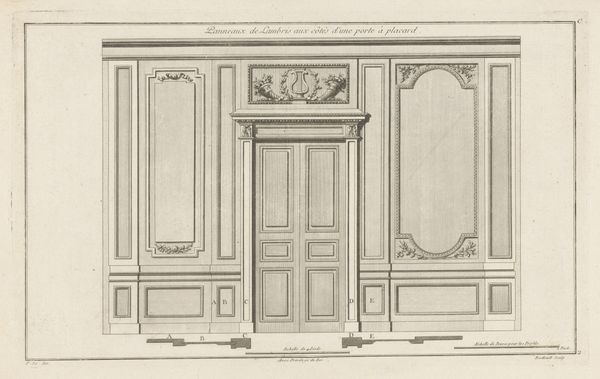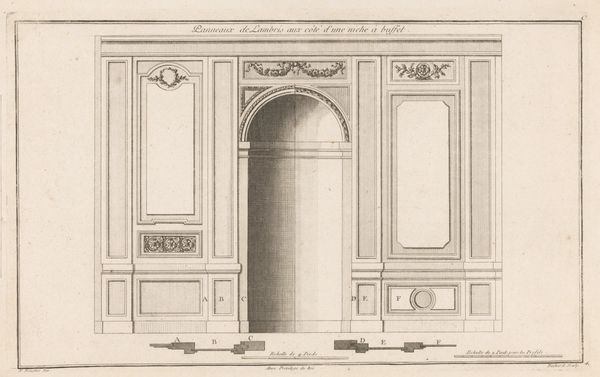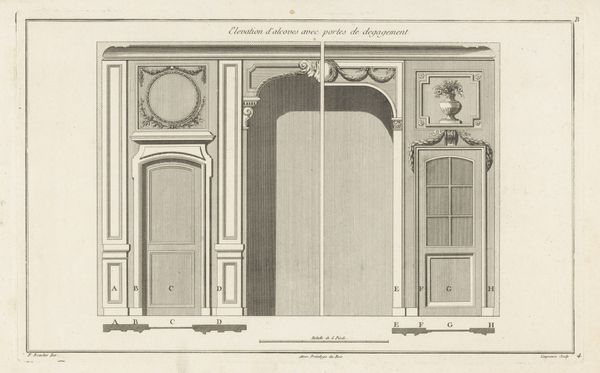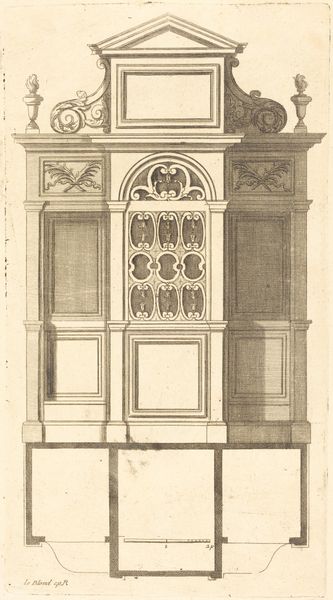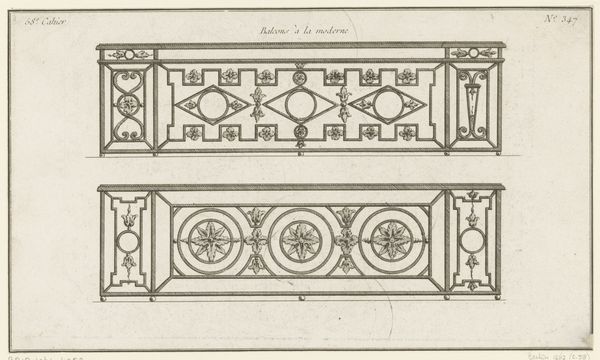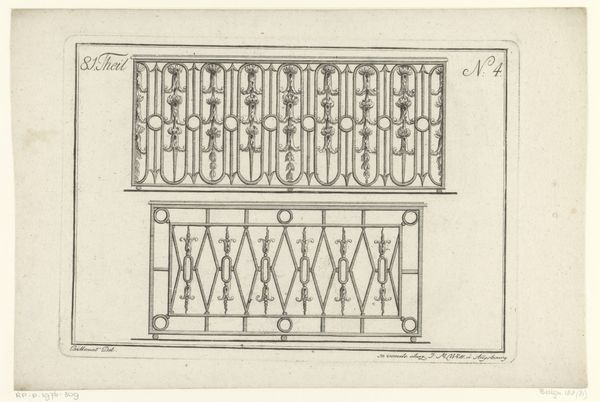
drawing, print, paper, engraving, architecture
#
drawing
#
neoclacissism
# print
#
paper
#
form
#
line
#
decorative-art
#
engraving
#
architecture
Dimensions: height 221 mm, width 361 mm
Copyright: Rijks Museum: Open Domain
Pierre Gabriel Berthault created this design for a paneled wall with three cabinets, using pen and gray ink, around the late 18th to early 19th century. The cool tones and precise lines suggest a formal, almost architectural rendering. Each cabinet is flanked by classical elements – vases atop pillars – creating a rhythm of symmetry and balance. The arches above each cabinet break the linear structure, drawing the eye upward. This design operates on multiple levels. It's a functional blueprint, yet also a statement of aesthetic principles popular during the Enlightenment. The classical motifs embody a desire for order and rationality, reflecting the period's intellectual climate. The regularity of the lines, combined with ornate flourishes, creates a tension between utility and decoration. Consider how Berthault uses line and form to convey not just a design, but a whole philosophy of order and beauty. Art is never just about what we see, but how it reflects the ideas of its time.
Comments
No comments
Be the first to comment and join the conversation on the ultimate creative platform.
